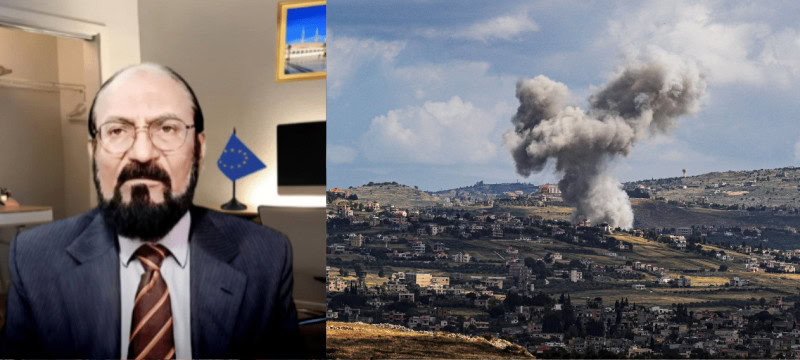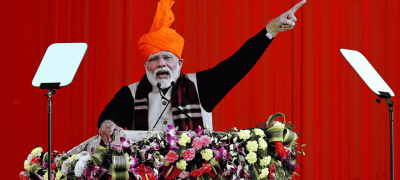In a recent interview with News Guru Pakistan, Muhammad Faisal, the international mediator, analyst, and head of the World Peace Mission, delivered a stark warning about the potential global repercussions of a US-Israeli attack on Lebanon. Faisal asserted that such an assault could ignite an unending conflict in the Middle East, drawing in various regional and global powers and unsettling the global peace equilibrium.
Hezbollah and Hamas Alliance: A Dangerous Convergence
Faisal highlighted the peril posed by the alliance between Hezbollah and Hamas, two of the most formidable non-state actors in the Middle East. According to Faisal, this partnership significantly escalates the risk factor, suggesting that any military aggression towards Lebanon would not only destabilize the immediate region but could also lead to a broader, more devastating conflict. “If war is imposed on Lebanon,” Faisal emphasized, “the whole world will feel its effects.”
Global Ripple Effects: Europe on Edge Amid Middle Eastern Conflict
The potential conflict has already sent ripples of unease across Europe. As nations brace for the possible fallout, economic and political anxieties are mounting. European countries, already grappling with internal challenges, are now facing the specter of a new wave of instability emanating from the Middle East. The interconnected nature of modern geopolitics means that a war in one region can have far-reaching consequences, potentially disrupting global markets, trade routes, and international relations.
Major Powers Maneuver: Russia and China Respond to Growing Tensions
As the situation in the Middle East deteriorates, major world powers are not standing idle. Faisal noted that Russia is rapidly formulating its war strategy, indicating a readiness to engage or counteract any moves perceived as threats to its interests or global stability. Similarly, China is closely monitoring the unfolding events. With its strategic interests in the region and a focus on maintaining regional stability to foster economic growth, China is urging neighboring countries to concentrate on their economies and defense strategies.
“China wants its neighboring countries to focus on their economies and defense strategies,” Faisal observed, highlighting Beijing’s dual approach of promoting economic development while ensuring military preparedness.
Shifting Dynamics: Pakistan Urged to Reevaluate Foreign Policy in New World Order
In light of these shifting dynamics, Faisal stressed the need for Pakistan to reassess its foreign policy. He underscored the emergence of BRICS (Brazil, Russia, India, China, and South Africa) as a cornerstone of the new world order, signaling a significant shift in global power structures. “The New World order is speedily overtaking the old one, and the power of the world is rapidly shifting to Asia,” Faisal stated, urging Pakistan to align its strategies with these new global arrangements and form strategic defense alliances.
Faisal’s remarks come at a critical juncture, as the global community watches the Middle East with bated breath. The potential for a large-scale conflict could have devastating consequences, not only for the immediate region but for the world at large. The prospect of an enduring war in the Middle East threatens to redraw alliances, disrupt economies, and instigate a new era of geopolitical uncertainty.
The New Crusades? A Historical Parallel
Drawing a historical parallel, Faisal warned of the dangers of repeating the history of the Crusades in modern times. He suggested that the current geopolitical tensions could mirror the protracted and destructive conflicts of the past if not managed carefully. This historical analogy underscores the gravity of the situation and the necessity for diplomatic efforts to prevent escalation.
Conclusion: A Call for Strategic Realignment
As the world stands on the precipice of potential upheaval, Muhammad Faisal’s insights serve as a clarion call for strategic realignment and proactive diplomacy. The evolving global landscape demands that nations reassess their alliances and strategies to navigate the complexities of a rapidly changing world order. For Pakistan, this means realigning its foreign policy to better suit the new global realities, ensuring its security and prosperity in an increasingly volatile world.
In this time of heightened tension, the international community must heed the warnings and work collectively to avert a crisis that could reshape the global order for generations to come







